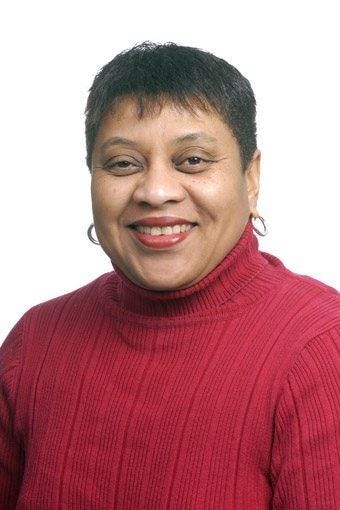
In the days just prior to the special election in Alabama, New York Times columnist Howell Raines profiled Odis and Mavinee Bishop, a Greatest Generation couple living in Arley, Alabama, who were split between supporting Roy Moore and Sen.-elect Doug Jones.
Mr. Bishop assured Raines he would convince his wife to vote for Moore.
"No, you won’t," she said.
Mrs. Bishop’s response was reminiscent of Maria Portokalos in "My Big, Fat, Greek Wedding," who quipped that "The man is the head … but the woman is the neck."
Speaking of characters, one of the reasons we liked "All in the Family" is because it was rooted in realism. In the weeks to come, we’ll learn just how many Edith Bunkers — how many old-school, traditional, conservative wives, mothers and mee-maws — went rogue in the best way you can in a democratic republic.
It takes a lot for people to break ranks. Perhaps the controversy swirling about Moore’s campaign, like so much sewage, fostered an unspoken kinship between those who credibly accused him of improprieties and the thousands of women in Alabama who have stories of their own, incidents and humiliations they’ve never shared with anyone and probably never will.
LAST STRAW
Maybe Moore’s biblical bloviating was the last straw, as they watched women who had everything to lose get dragged through the public square.
Maybe it gave new life to the long-buried fear that, even if you tell, you won’t be believed.
Or perchance the election was, as Shakespeare put it, a dish best served cold.
The grand irony is that women, who must always fight hardest to be included in the political process, ended up preserving it.
It is said that if it weren’t for women there would be no churches, because women are the backbone, the driver, the life of the local body. Maybe the spectacle of seeing so many people trampling the Gospel underfoot in a naked bid for political power was a bridge too far.
VALUES VOTERS
No other special election in a state where most Americans don’t live captured as much attention as this one. It has been called everything from a harbinger of things to come to a national referendum on decency.
Because dollops of Puritanism still linger in the American bloodstream, the "ick" factor of Moore’s penchant for extremely young women couldn’t be ignored.
The "soft bigotry of low expectations," as President George W. Bush coined it, also reared its head as pundits predicted that black Alabamians were disengaged and wouldn’t turn out in enough numbers to matter.
But women are the "neck" in black families, too. In a state where the right to vote was forged in blood, where disenfranchisement is still alive and well, they understood what was at stake. Their birthright includes the Edmund Pettus Bridge and the 16th Street Baptist Church.
They’ve lived with the Roy Moore rumors and racial dog-whistling long before the rest of us heard of him, so perhaps on Election Day they recalled the whispered family stories of how their grandmothers as young women lived in fear of attracting the attention of such men, who held the power of life and death over them and their families.
No one should marvel that Perman Hardy, a former sharecropper from Lowndes County, transported people to and from the polls for 10 hours Election Day and has been doing so for 25 years.
True values voters, such women took up the moral mantle of saving Alabama from itself.
Reach Charita M. Goshay at 330-580-8313 or charita.goshay@cantonrep.com.
This article originally appeared on Crestview News Bulletin: Call result in Alabama ‘Edith Bunker’s revenge’
